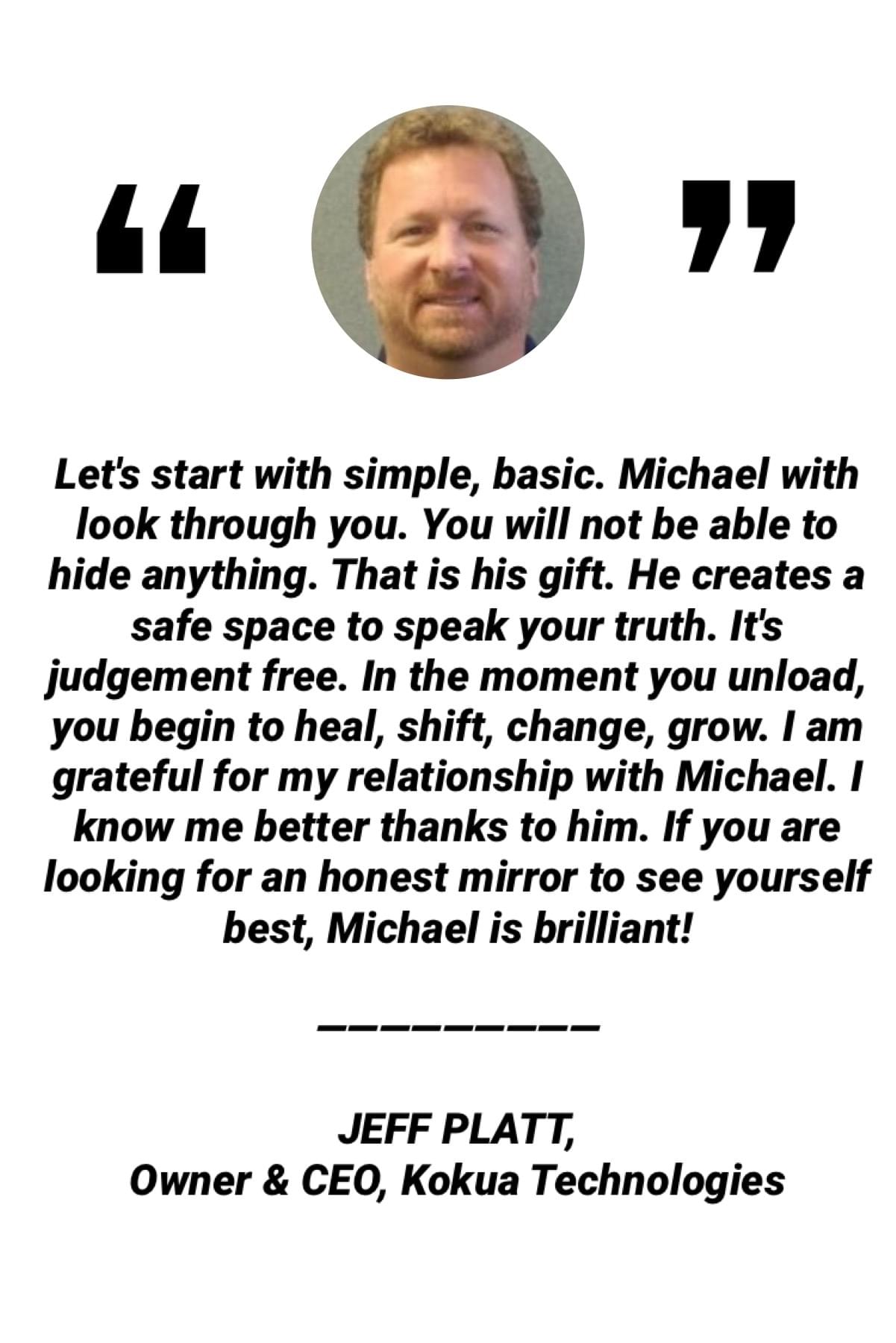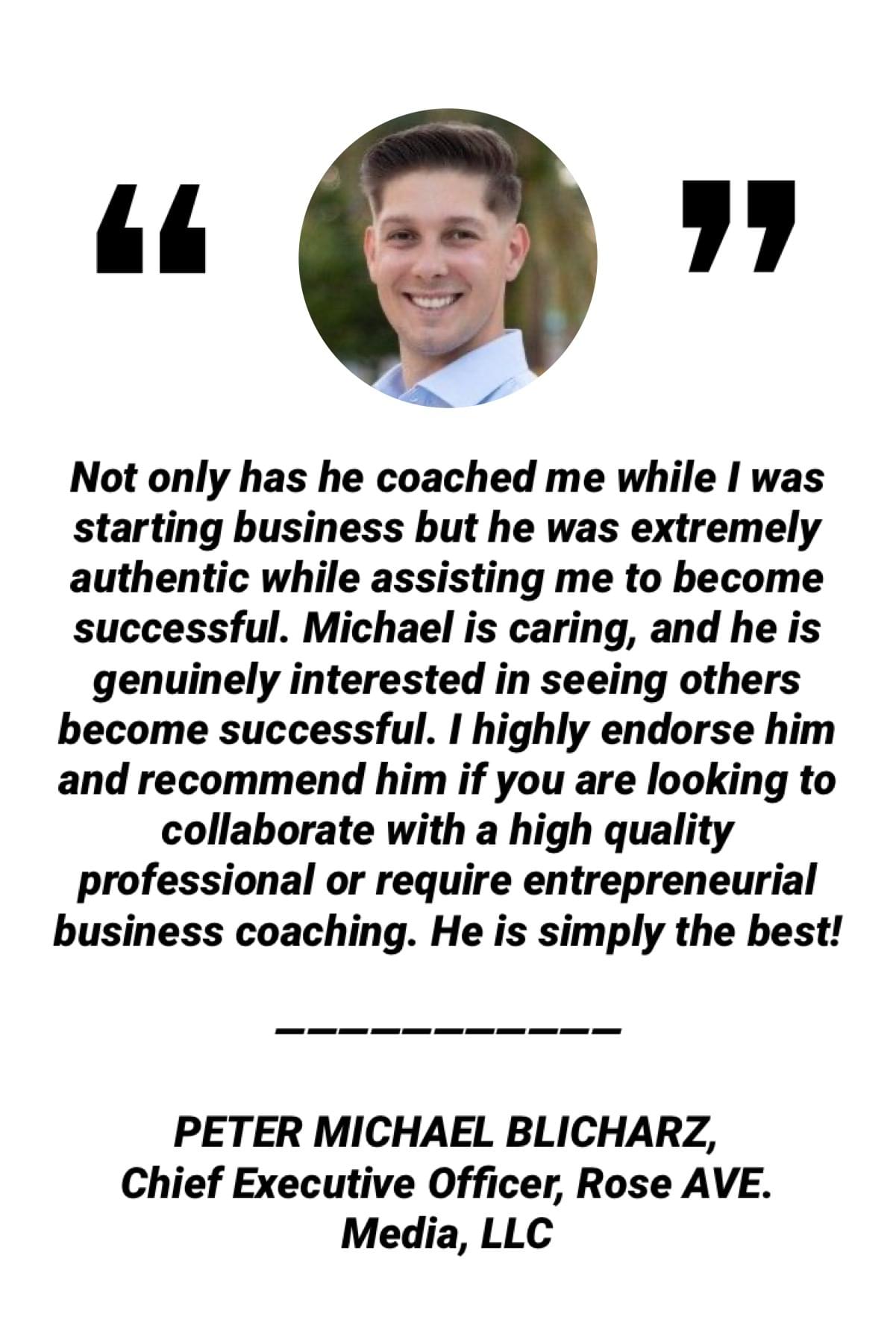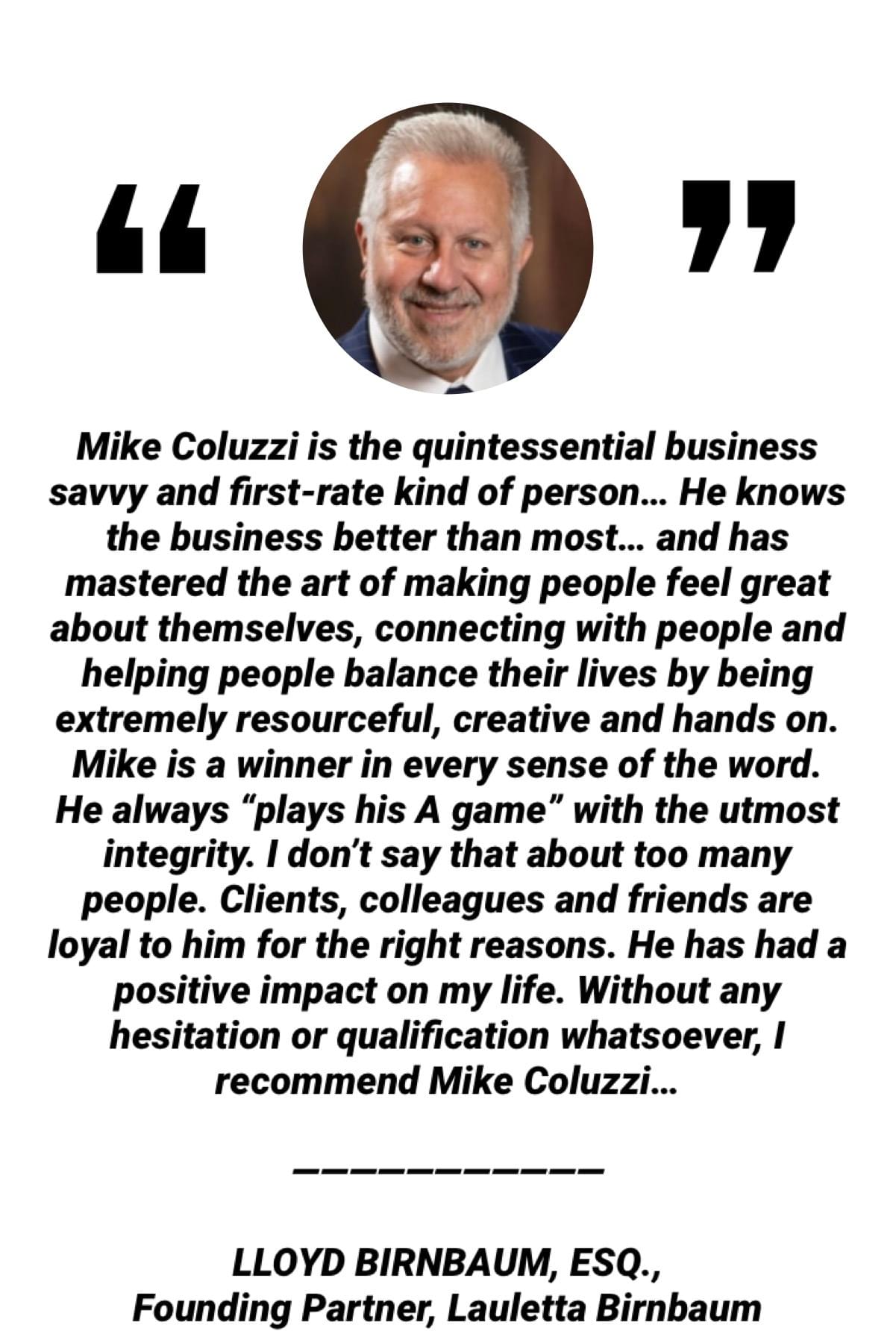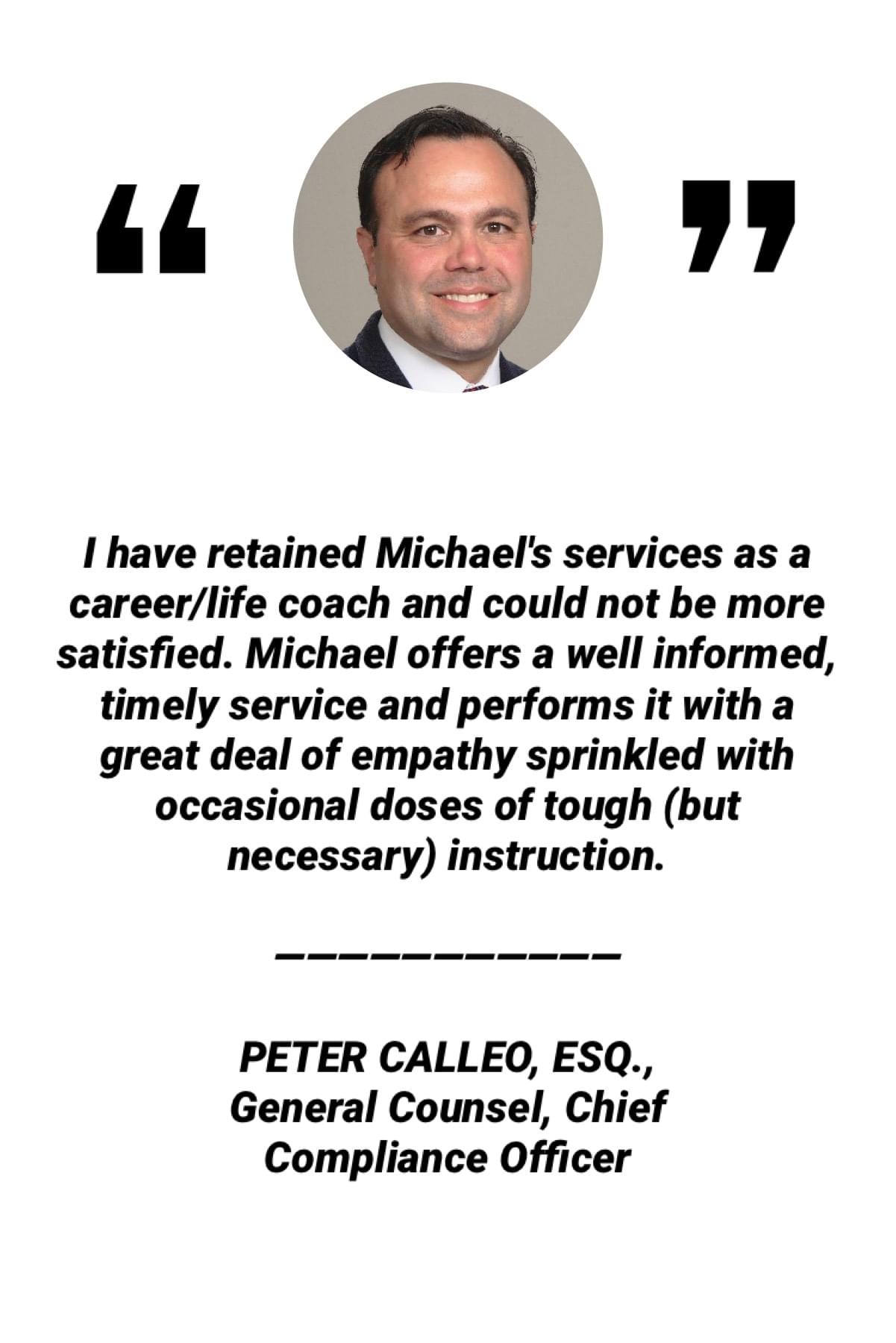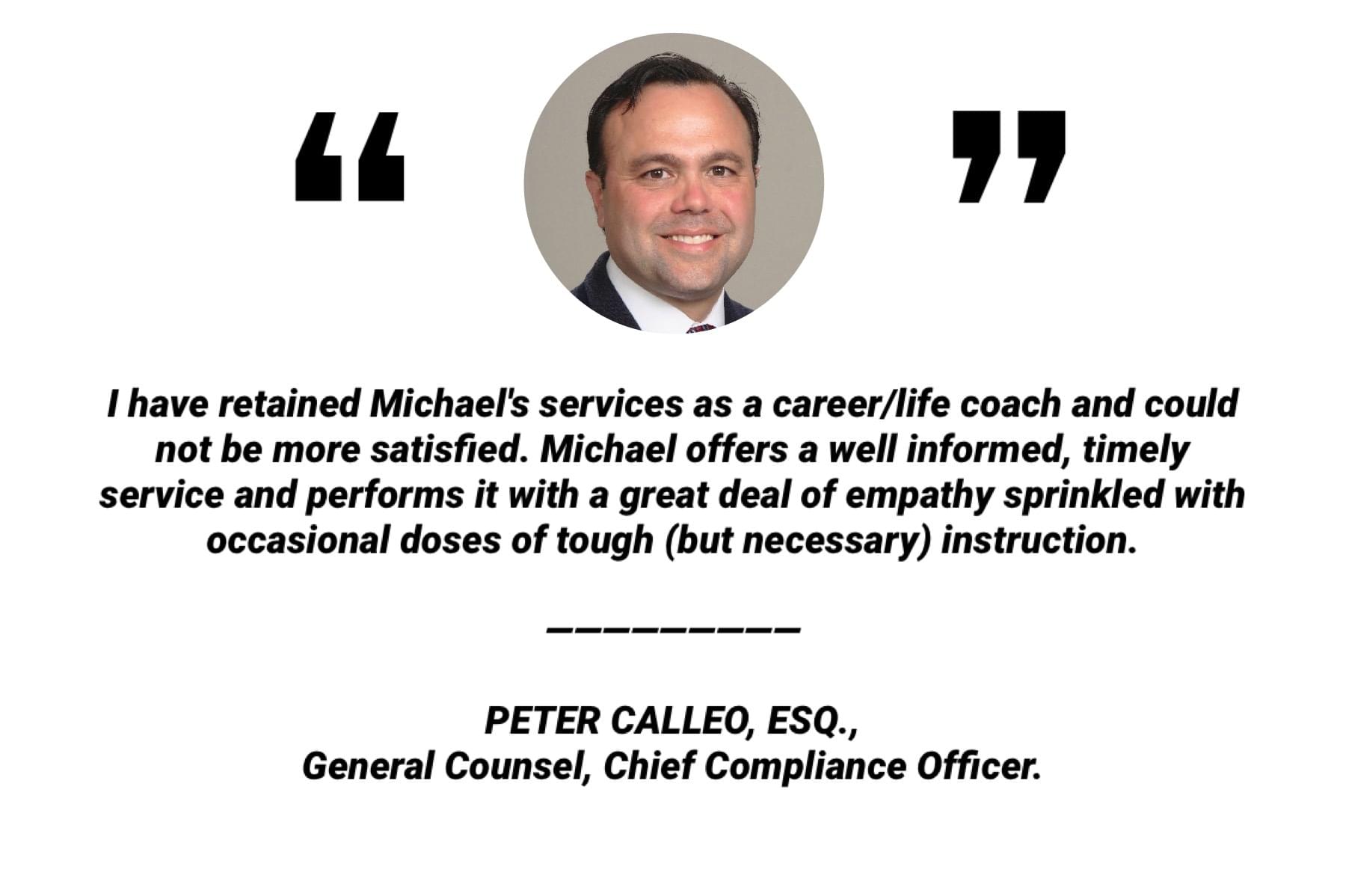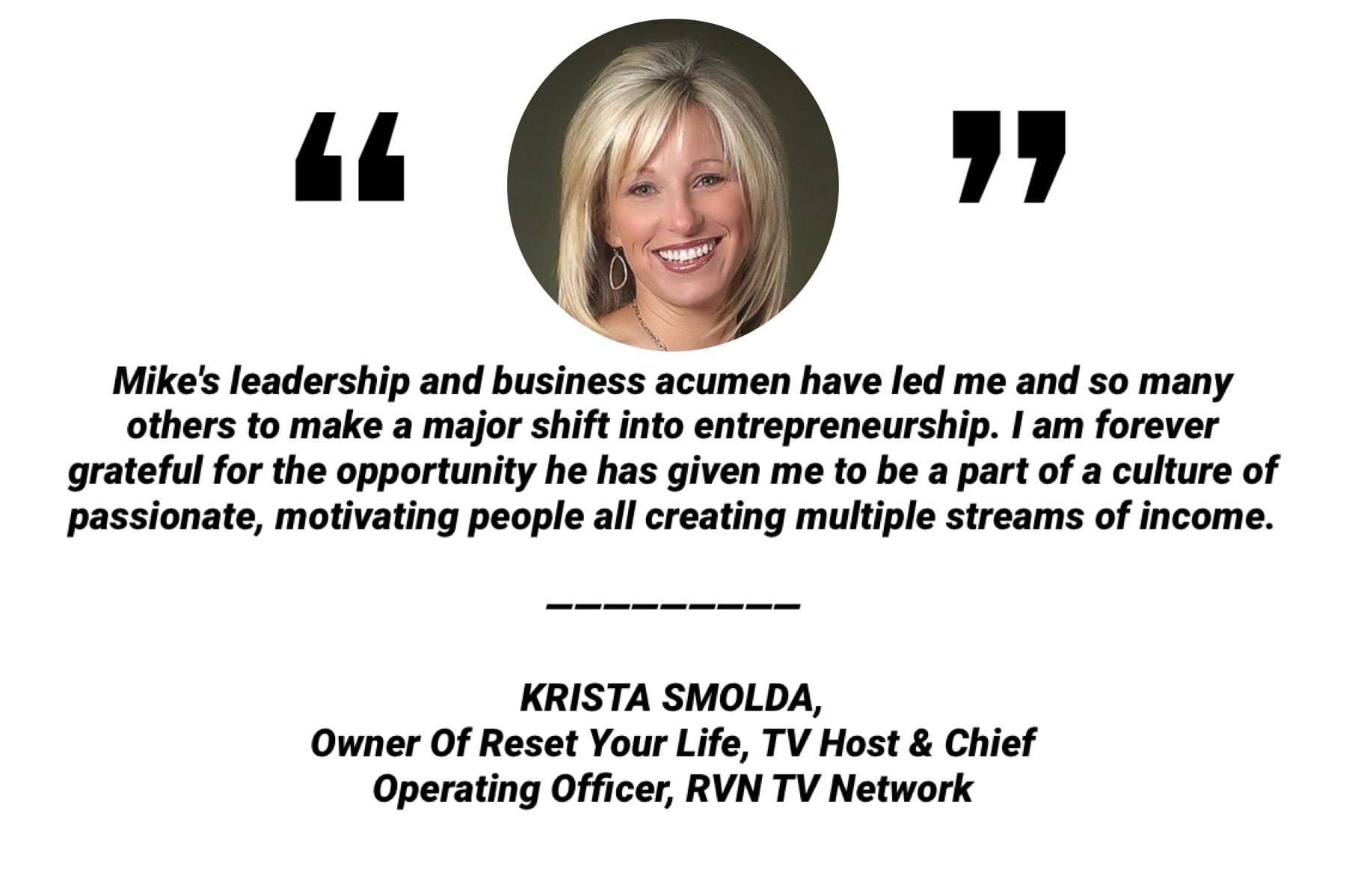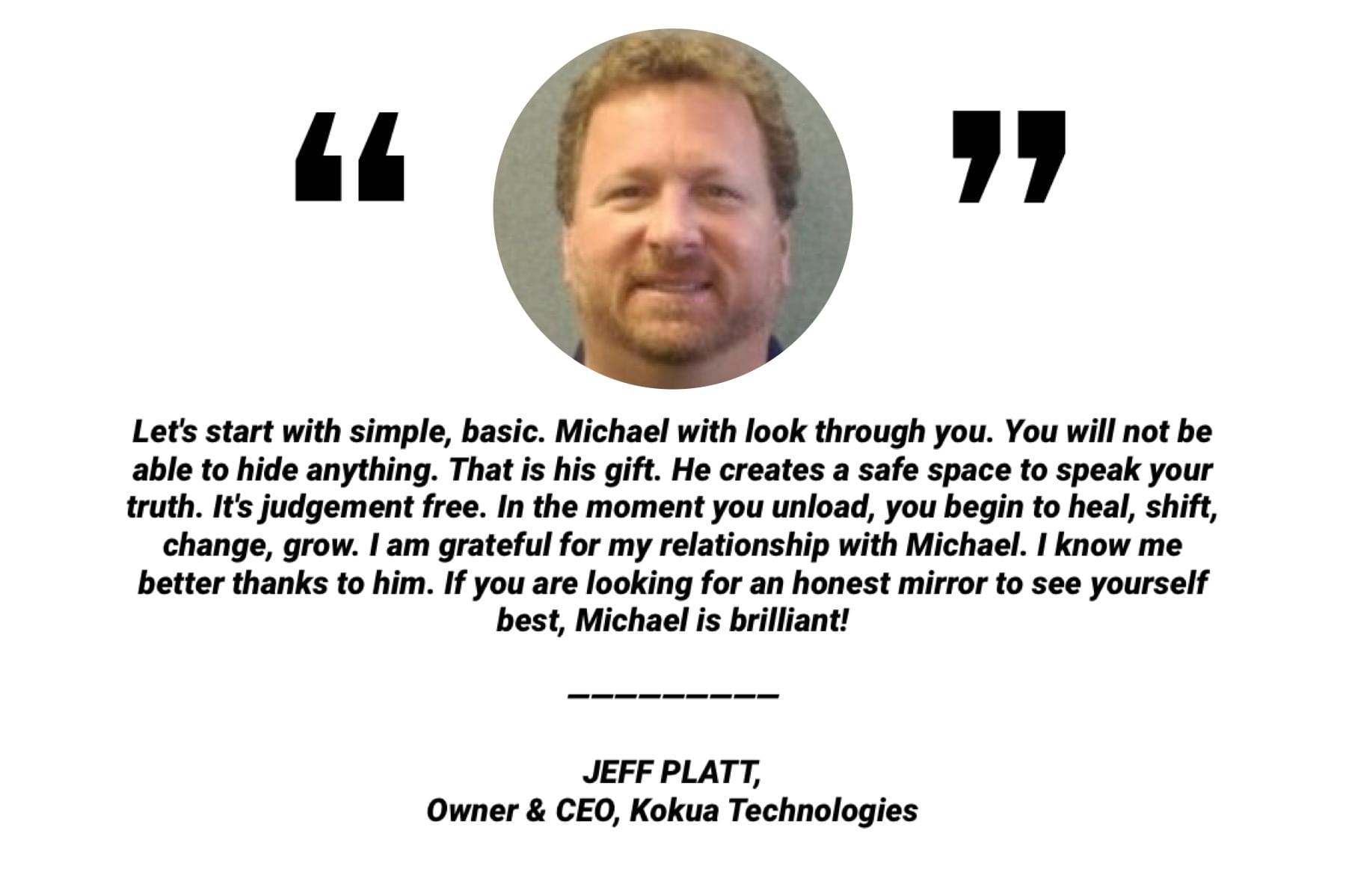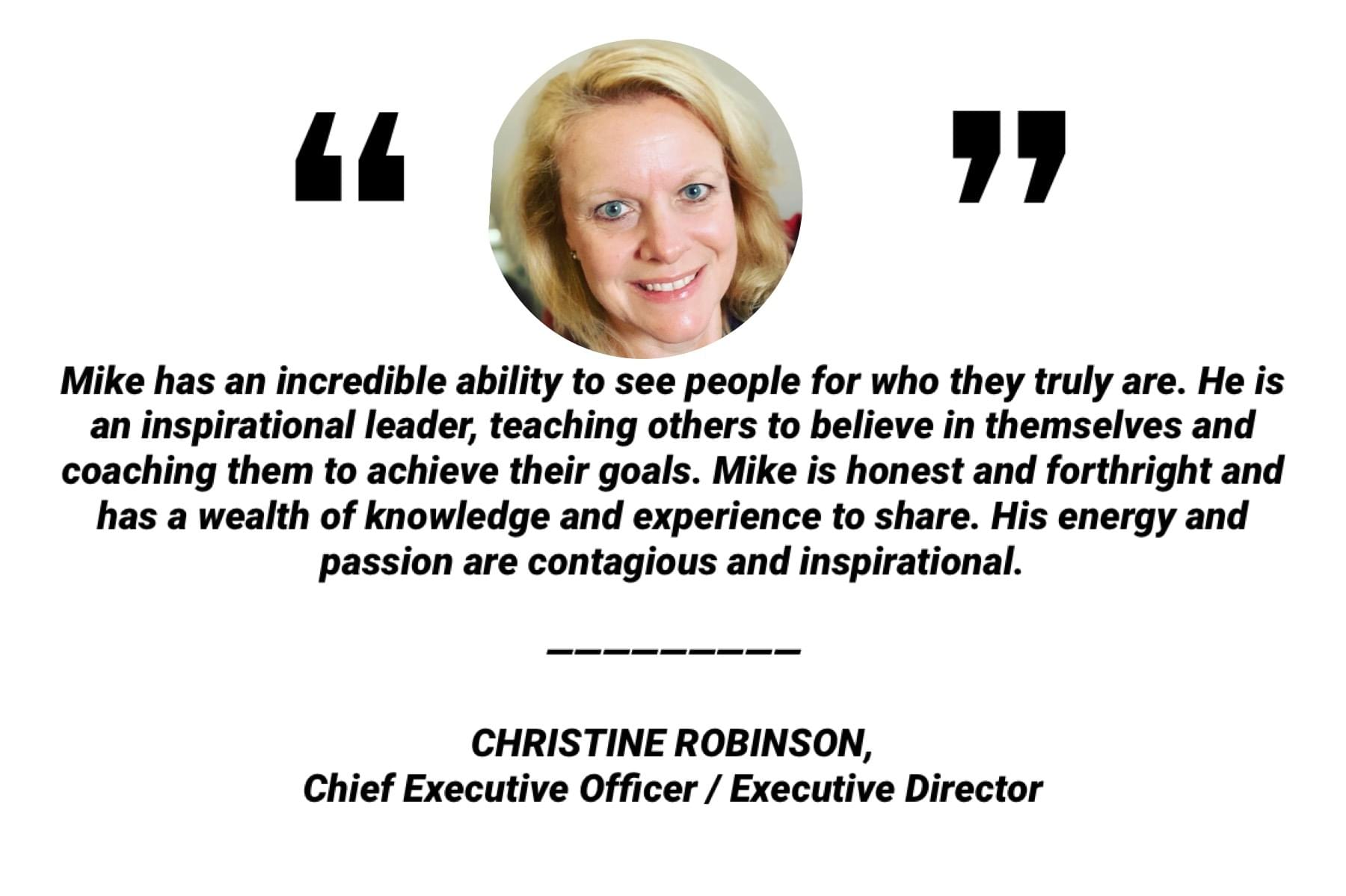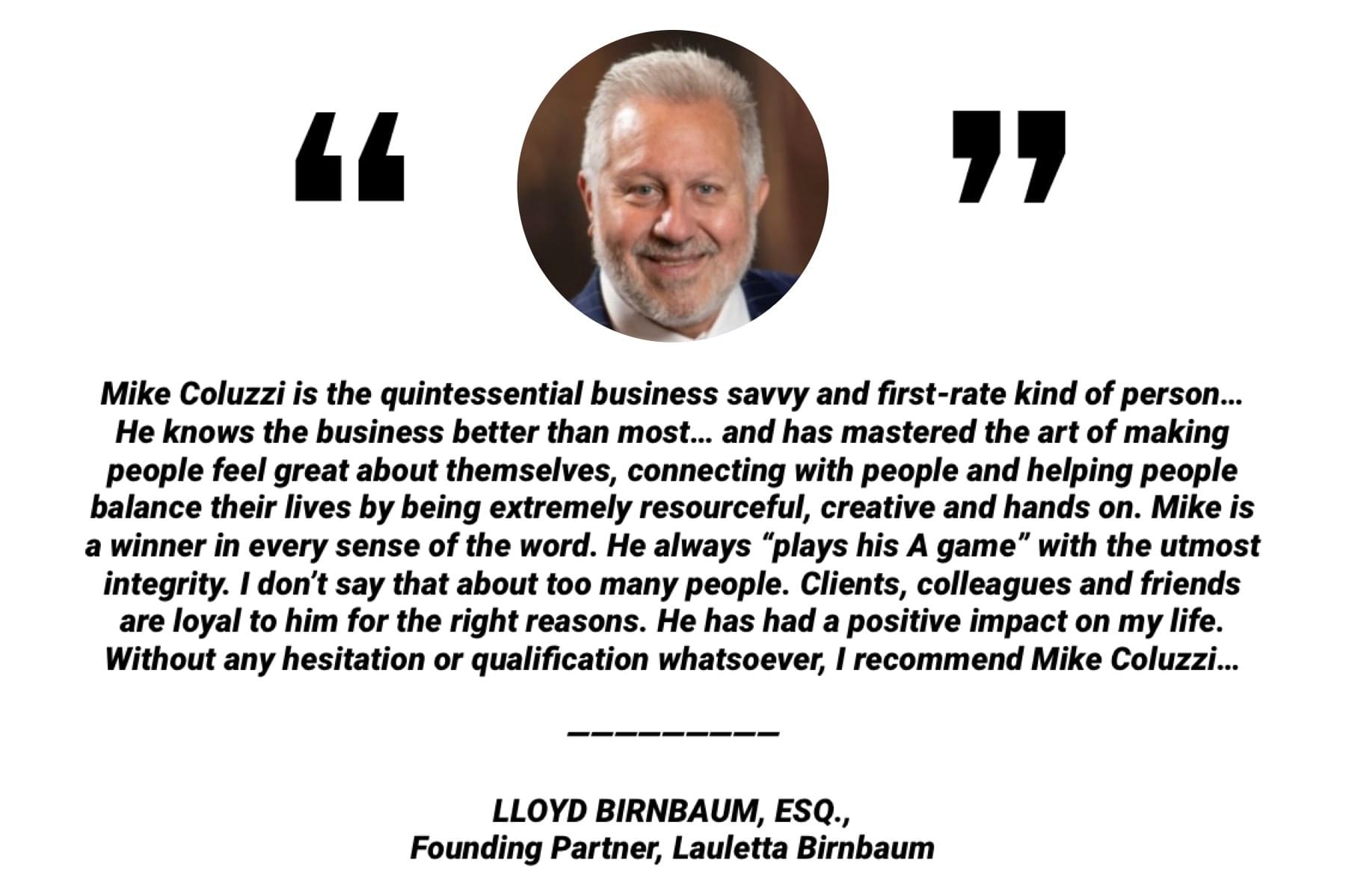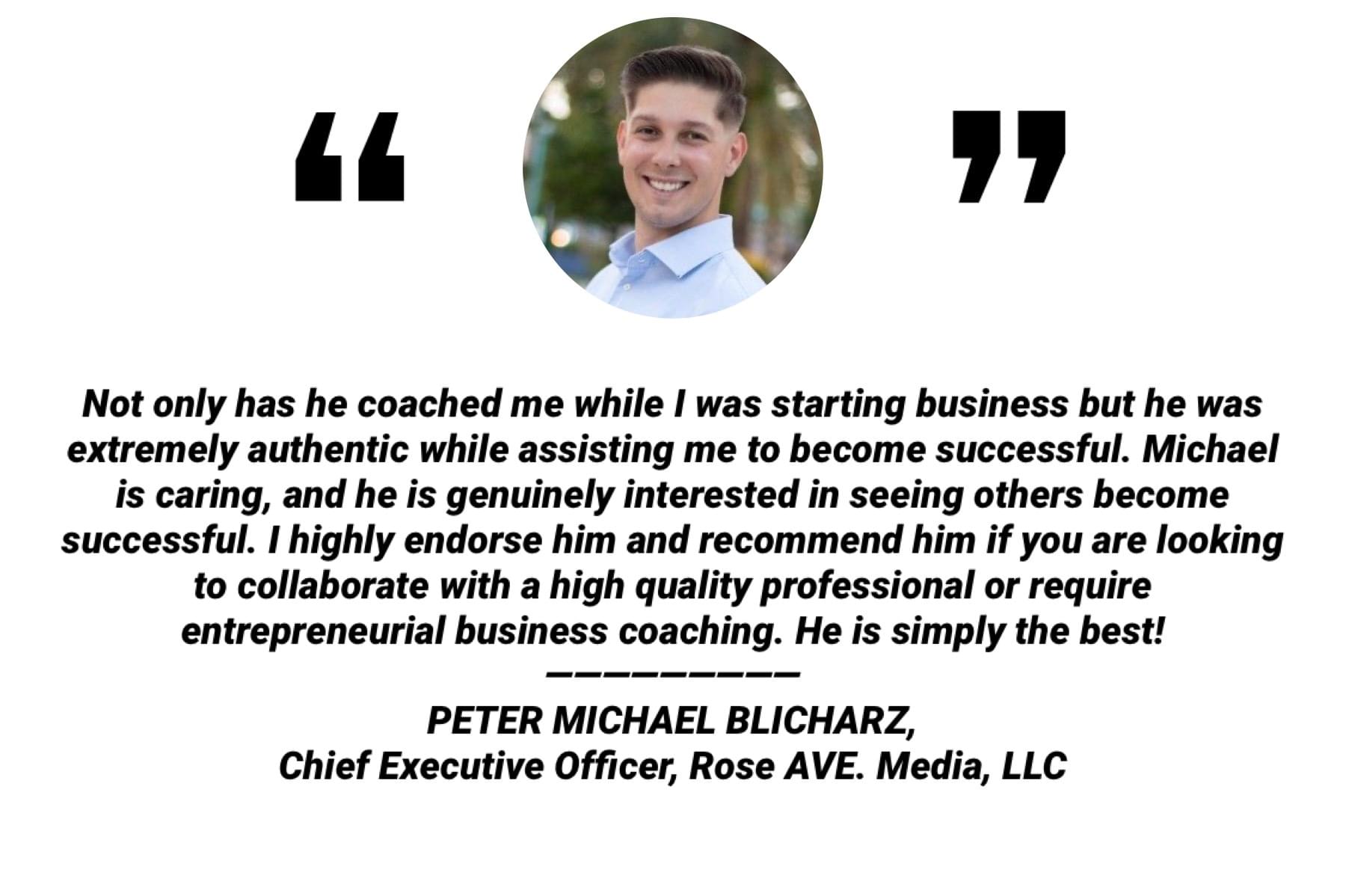GET STARTED NOW WITH NO OBLIGATION
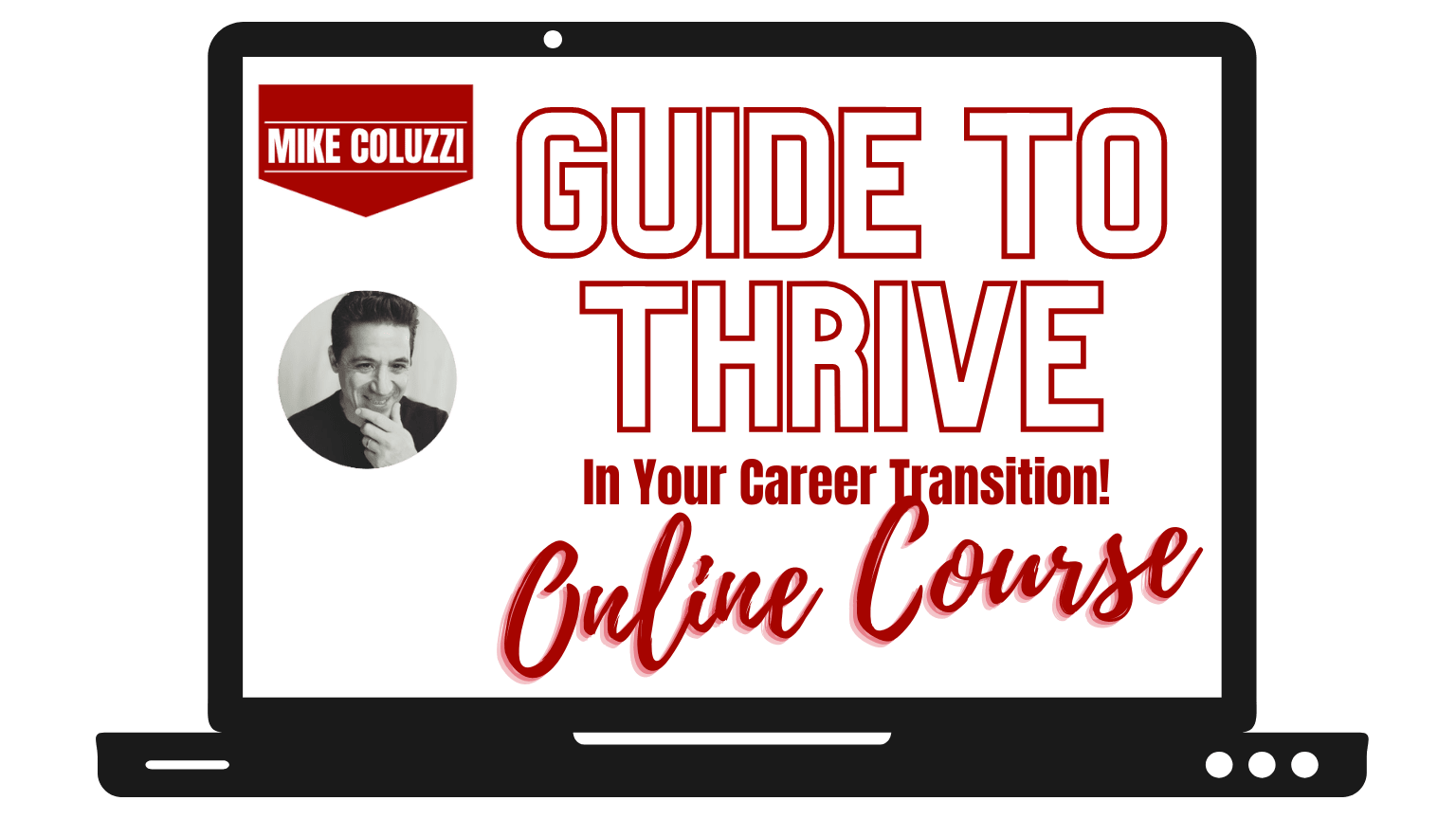
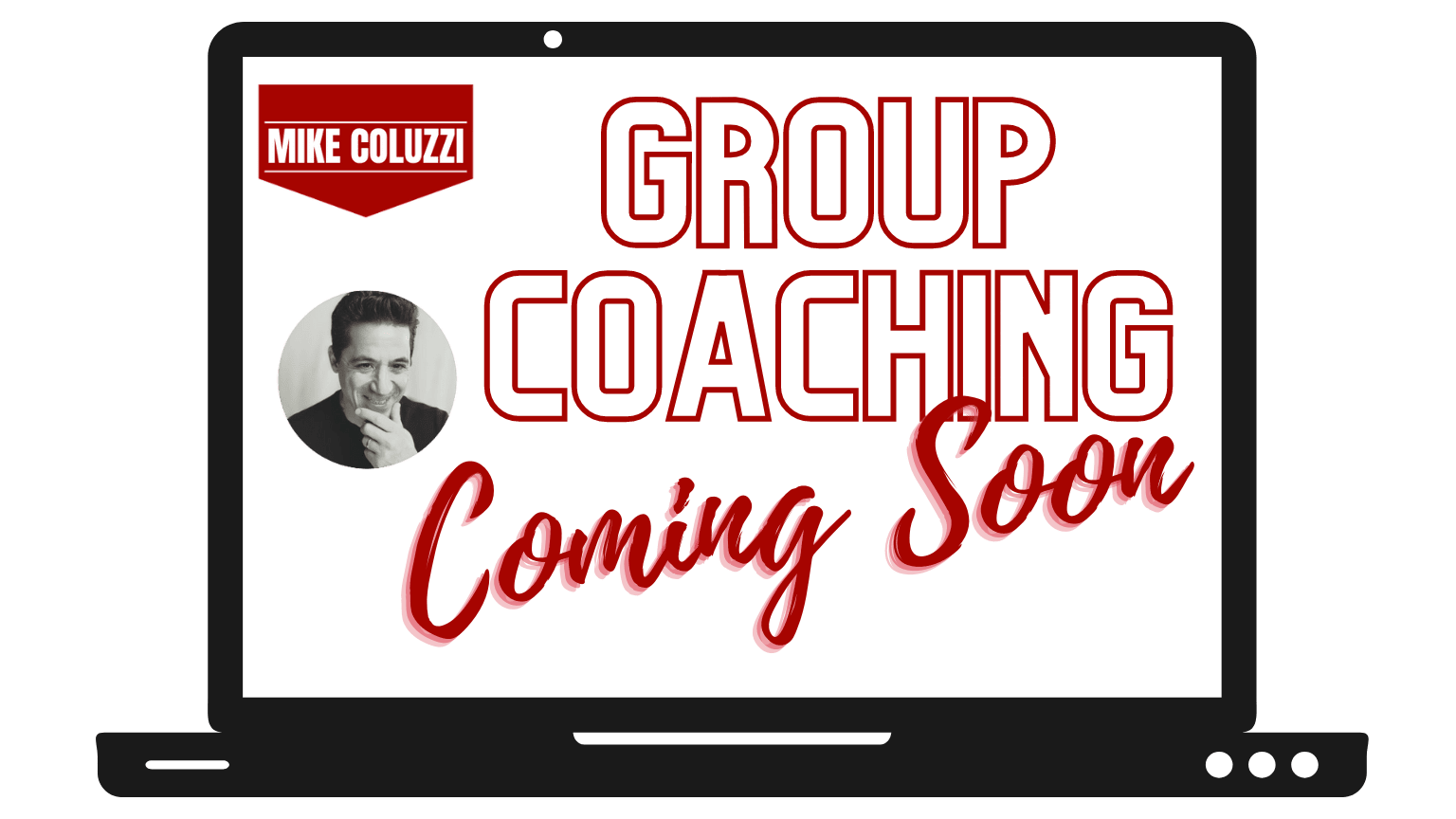
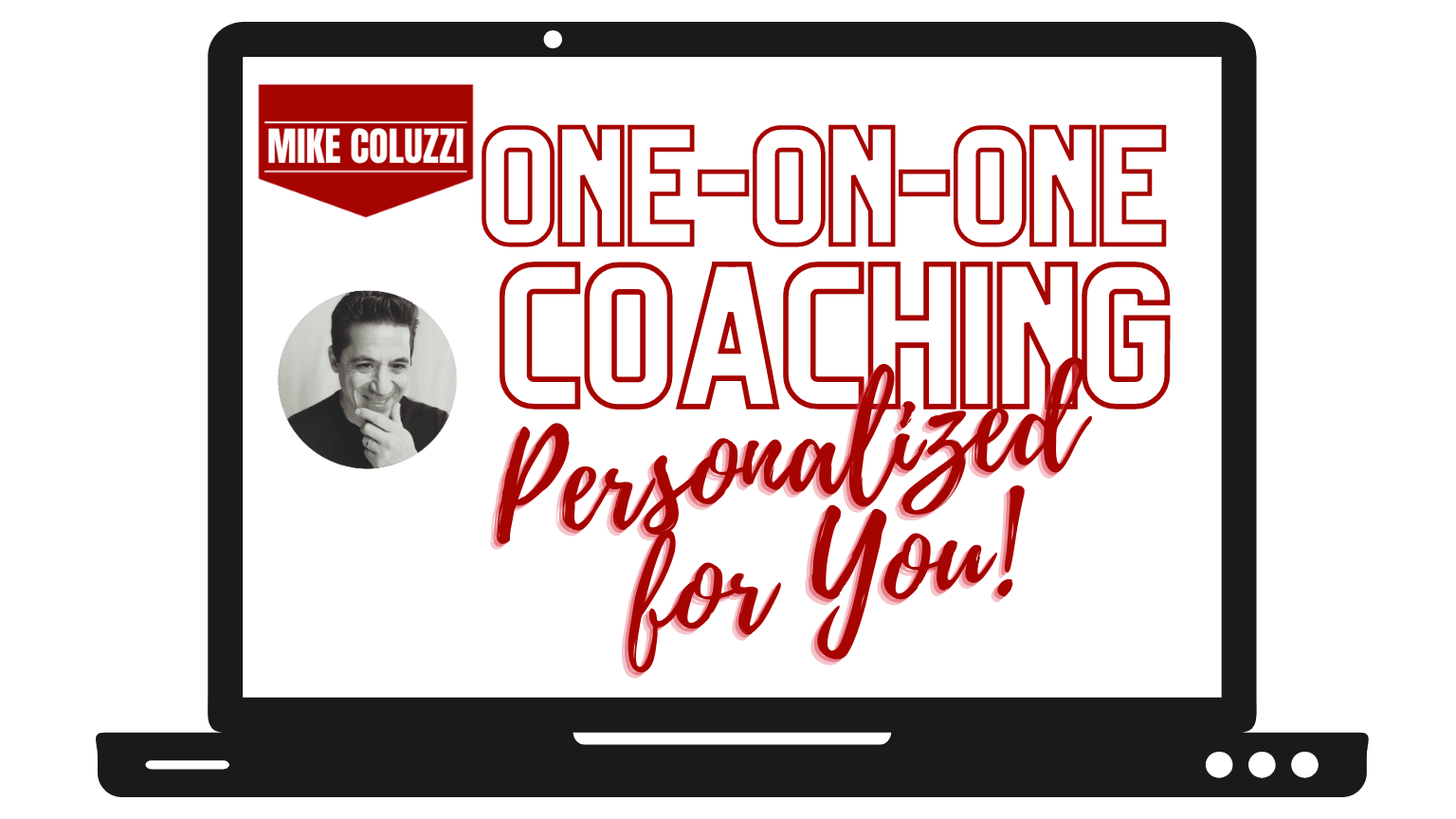
Join the mailing list and get a free gift to your email inbox!

Personalized Coaching, Group Coaching & Courses that
Eliminate Fear & Overwhelm Associated
With Career Transitions
Move Forward with Purposeful Intention, a Winning Mindset, and
a Clear Pathway to Success.


On-Demand Course
(coming soon)
A complete guide to prepare for your career transition.
Gain Clarity on your ideal career purpose that aligns with your Unique Value Proposition
Gain Clarity on your ideal career purpose that aligns with your Unique Value Proposition

Group Coaching
(coming soon)
Once a week, join a Members Only live video to learn and develop critical skills to advance your career transition skills.
Once a week, join a Members Only live video to learn and develop critical skills to advance your career transition skills.

Personalized Coaching
Reserved for the ideal client committed to optimizing their efforts to achieve optimal results in their career transition.
Whether you lost your job, left your job, transitioning to a new career or starting a new business tackling a career transition without guidance can cost you…
- Fear of Failure & Rejection Will Keep Stuck in Neutral
- Negative Self-Talk Will Drain Your Emotional Energy
- Lack of Clarity Will Cause Frustration & Overwhelm
- Lack of Accountability & Objective Feedback Will Cost You Time and Money
- Resistance Will Allow Procrastination & Doubt to Dominate Your Thoughts
- You Will Quit Before You Develop the Habits, Skills, & Mindset to Succeed
Time to LEVEL UP!
Don’t let fear, overwhelm, or frustration cloud your ability to achieve a successful career transition. Hire me as your personal business coach and leverage my knowledge, wisdom and insight earned from 25 years in the trenches as an attorney, business owner & entrepreneur to confidently conquer your career transition with clarity, confidence, and renewed sense of purpose.
Commit, Take Action & THRIVE.
Gain A Trusted Advisor To Provide You with Coaching,
Support & Guidance to Achieve
Meaningful and Quantifiable Results.

As your coach l will leverage my knowledge, wisdom, and insight earned from over 25 years in the trenches as an attorney, business owner & entrepreneur to help you successfully navigate through your voluntary or involuntary career transition.
I assist clients in the following areas:
- Identify and Implement the Optimal Strategic Plan for A Successful Career Transition
- Optimize Your Business & Social Media Profiles
- Teach You How to Leverage & Monetize Your Network
- Eliminate Overwhelm, Fear & Negative Self-Talk
- Develop and Maintain a Winning Mindset
- Operate With Purposeful Intention
- Identify Your Unique Value Proposition and Purpose
- Unlock Self-Imposed Limits
- Gain Confidence
After working with me, you will move forward with clarity, confidence, and a renewed sense of purpose.
Receive Measured Meaningful And Quantifiable Results That Are Important to You.
My Approach
Success in 3 Simple Steps.

Complete the Comprehensive Onboarding Questionnaire

A Strategic and Tactical Game Plan Will Be Specifically Formulated for You to Take Immediate Action Towards Your Career Transition.

We Will Meet WEEKLY To Implement the Game Plan to Achieve Your Successful Career Transition.
Immediate Action Steps and Quantifiable Goals
- At The Conclusion of Each Meeting, You Will Be Provided with Immediate Action Steps.
- Meetings are Confidential.
- Progress Is Measured Through 90 Day Increments.
- Consistant Focused Effort to Create Momentum, Clarity, and Results.

KEEP UP WITH THE LATEST NEWS
Copyright 2022 - Mike Coluzzi All Rights Reserved
3 REQUIRED NON-NEGOTIABLES BEFORE YOU LAUNCH YOUR SERVICE-BASED BUSINESS.
1. Your business must be based on absolute CONVICTION for the service you provide. You must feel it in your bones, body, and soul—an unshakable belief in what you are offering to the public. Your decision to enter business should NOT be based on wanting to escape from something else. Business success is about an ASSURED mindset.
2. You must be mentally, emotionally, and financially prepared to withstand unforeseen circumstances. Starting your own business is a gutsy move. I commend anyone with the courage to take the leap. However, courage will not be enough. You must understand that when you enter the free market, business is not linear. It is dynamic. I call it chaos theory in action. Therefore, you must adapt your tactical approach to handle those unforeseen circumstances and build processes and systems that you can rely on to provide stability in the uncertainty.
3. Have a CLEAR UNIQUE VALUE proposition. Far too many people do not drill down nearly enough to distinguish their offering to the public. We live in a time when people are looking for specific solutions. Now oddly enough, as a business owner, you will have to play the role of utilitarian, but your offer must be extremely focused and tight. There is a specific process I created that helps people identify their unique value proposition to immediately identify the people they want to serve, the specific problem they are experiencing, the specific solution, and how the client will feel after experiencing the service.
If found this article helpful, please share it with as many people as possible. And, if you are someone looking to fully realize your potential in a career transition, I invite you to reach out to me for a FREE consult at mike@mikecoluzzi.com.
To Reach Your Full Potential You Must Separate Yourself from People Holding You Back
Often a career transition can show up in the form of a decision to commit to reaching one’s full potential. Many of us hover around average or a little above average on the mistaken assertion that it is acceptable. It’s not. And, if you are reading these words and you take offense to my statement, that’s on you. It’s your ego taking offense to me calling you out virtually (and with love and respect of course). But it is unequivocally a fact, and you must realize it and move beyond it to begin playing full out to realize your full potential.
Still don’t believe me? Well, think of this: I was listening to a podcast from one of my mentors and he said, “be world-class or be beloved, but you can’t be both.” As I let that truth bomb ruminate in my brain, he went on to state: “Whoever has achieved world-class status and left the world of average, regardless of the field of endeavor has had their fair share of people who became envious, jealous, resentful or even hateful of them or their success”. It goes with the territory and is a price that must be paid to achieve your highest level of potential.
During the transition process, it can hurt. It can be downright painful and gut-wrenching, but you’ve got to develop a tough skin and an unshakable belief in yourself to know under no uncertain terms you will not accept mediocrity. For those of us with co-dependent tendencies, this may be particularly difficult, as we allow those traits to infiltrate our professional lives as well. We can feel guilty or self-conscious about hurting people’s feelings, letting them down, or even putting them at risk because we are removing the safety net we installed into their lives, but we must separate ourselves from those feeling and those people. This does not mean you eliminate them from your life, it means you install self-preserving mechanisms, establish boundaries, and if necessary physical or emotional distance. It is a must and is a non-negotiable step.
The longer you allow these people space in your head and in your life, the longer you will stay in the world of average. It makes all the difference between success and failure, financial abundance, and financial failure, hitting the highest level of achievement or staying stuck in Palookaville.
There is also the possibility of a great derivative benefit from your decision to separate from people who are holding you back. If they have the drive, determination, and potential in themselves and then let go of the negative emotions associated with feeling victimized by your decision to move on, they may look at you as an inspiration to ramp up their own level of performance and goal setting to reach their own potential. That of course is truly a winning scenario for all involved! But, for those who decide to demonize you or look at you in a negative way for taking full ownership of your life that decision will remain on them.
If found this article helpful, please share it with as many people as possible. And, if you are someone looking to fully realize your potential in a career transition, I invite you to reach out to me for a free consult.
5 TIPS TO HELP YOU IN YOUR CAREER TRANSITION
1. Gaining clarity on your unique value proposition and purpose.
2. Gaining objective feedback on your ideas BEFORE, DURING & AFTER you take the dive. Too many people romanticize the idea of being on their own. It is extremely important to keep things in context.
3. Make sure you are making the change for the right reasons.
4. Recognize the need to pivot and adjust regardless of how much you prepare and plan.
5. Make sure you have systems in place to pure positive belief into your brain on the regular once you make the leap.
If you or someone you know is considering a voluntary career transition. Before you take the leap, reach out to me for a consult. I can assist you through every phase of the process to ensure you move forward in a way that is right for you. To eliminate fear, anxiety, overwhelm, and frustration in the process.
Feel free to reach out to me at for an initial consult at mike@mikecoluzzi.com or here: https://calendly.com/mikecoluzzi/15min
HELPING YOU THROUGH CAREER TRANSITIONS
Career transitions happen for all sorts of reasons. Some of us are in jobs or careers that no longer serve us. Some are discouraged, disillusioned, or burnt out. Some of us want to start our own business or transition into something new. And others unfortunately are let go.
Regardless of the reason, here is what I know:
You’re capable
You’re accomplished.
You’re competent, driven, and had success in the past.
But here’s the thing:
Many of us hit roadblocks we find challenging to overcome when faced with a career transition. Failing to overcome these roadblocks can cost you. But it doesn’t have to be that way.
I’ve been coaching and mentoring people for years. Through that time, I’ve developed an approach that combines just the right amount of objectivity, empathy, knowledge, and experience to help clients get optimal results that are important to them. My approach is based on decades in the trenches as an attorney, real estate developer, business owner & entrepreneur. I will share hard-earned wisdom and insight with you to achieve success in your career with clarity, confidence, and a renewed sense of purpose.
If you are ready to get the best one-on-one business coaching experience possible to reach the fullest potential of your career, I encourage you to take the next step and hire me as your coach.
5 TIPS TO ELIMINATE STRESS AFTER A JOB LOSS
A job loss can be extremely stressful. Whether voluntary or involuntary there is always fear associated with a job loss. Fear of the unknown, fear of failure, fear of running out of money, fear of being judged, and fear of doing something wrong. It can be endless and exhausting. There is no easy way around it. It’s a painful process, but it is up to us to mitigate the pain, not fall into victim mode, the black hole of depression, or isolate ourselves from the people we love and who love us.
Let me be clear. I’m not a licensed mental health professional. I’m a business coach and professional who has been through more ups, downs, transitions, and everything in between that I am confident I can coach virtually anyone in any business situation, so long as they are willing to engage in the process. You might think that is a bold statement. It is, but I earned it. I’ve taken the risks, earned the wins, suffered through the losses, and persevered through everything in between. For the most part, I have no regrets and live each day grateful to use my experiences to help others excel in their business and life. It’s a privilege to do so, and I don’t take that privilege for granted.
So, with that said: Here are 5 Tips to Help Reduce Stress During a Career Transition:
1. Remember It Is Temporary in Nature. You’ve heard it before, I know. But, just as Cosmo Castorini reminded his daughter, Loretta in the classic 1987 movie “Moonstruck” “everything is temporary”, I too am reminding you of this simple truth and it is important to keep it at the forefront of your mind when you are asking yourself, “why, did this happen to me?” We all get our fair share of struggle and strife, but if you understand the temporal nature of all things and keep the situation in context, you will be in a much better position to stay calm and forge ahead towards a meaningful solution without attaching finality to the current challenging situation.
2. If You Want to Scream. Go Ahead and Scream. Get it out of your system, but there are caveats to this one:
a. Don’t scream at anyone. It’s not their fault, so don’t bring them into the mix.
b. Get the scream out of the way, and then end the self-imposed pity party. :-)
c. Get back to work. Nothing beats a bout of the blues like doing something productive.
3. Avoid Emotionally Attaching to General Statements About the Situation. Now, you may be wondering, what the heck are you talking about Coluzzi? Let me explain. During stressful times, many of us have a difficult time thinking clearly. And, when we don’t think clearly, we tend to over-generalize things, relate back to past events, and attach them to our current circumstances and fail to get down to the specifics of the root problem. Under any of these scenarios, we create a negative loop that gets played repeatedly in our brain without identifying the root of the problem. In other words, we get stuck in the emotion, rather than live in the solution. Dig in and identify the problem you are facing, specifically and then work on a specific solution to that problem, then see 2.c. above.
4. Conduct your own personal S.W.O.T. analysis. Not to get all business on you, but… nothing works quite like the classic S.W.O.T. analysis. If you think about it, losing a job is the ultimate business problem. You are in fact out of business (for the moment) of course. And, as the professional I know you are, you know the more complex problem you solve the more valuable you are to yourself and those you serve. For my money, the best situational assessment tool out there is the S.W.O.T. analysis. For those of you who do not know what a S.W.O.T analysis is, please do the following:
Identify your Strengths
Identify your Weaknesses
Identify your Opportunities
Identify your Threats
Bingo. You just completed your first S.W.O.T. analysis. I will say, it is important to be as thorough as possible. Do not wing it or B.S. yourself. Be open, honest, and real. Take the time to do it right. I will say, it is a really good idea for you to get objective feedback on this one. So, run it by someone who knows you well or someone you trust will give you honest, open feedback and can spot holes in your analysis. Shameless plug here: This is one of my absolute specialties. If you want to really get the most out of your individual S.W.O.T. analysis. Reach out to me. I can help you big time.
5. Get in the Game, Stay in the Game!! Just because you are laid off, in a transition, or temporarily sidelined does NOT mean your experience and area of expertise are not highly valuable in your chosen profession. In fact, I tell my clients, that this is the PERFECT opportunity to delve deep into your field and become a standout in your industry. Again, there is a process to this that I teach people, but suffice it to say, far too many of us identify our personal self-worth to a job position or title. KNOW THIS: YOU ARE FAR MORE VALUABLE THAN ANY PARTICULAR JOB OR JOB TITLE!!
If you did make it thru this entire article, I’d like to first say, “Thank you”. I hope it was helpful to you. If so, I ask that you share it with 2 people whom you believe may find it helpful. And, if you are someone who going through a job loss or a business transition of some sort, whether it be voluntary or involuntary, I invite you to reach out to me for a FREE consult. I can help you achieve success through your transition.
LESSONS LEARNED FROM A RECOVERING CONTROL FREAK
I am a recovering control freak. There I said it. For most of my adult life, I’ve tried in vain to control people, situations, and things. Not a control freak in the maniacal sense, more of the “fear of an unwanted outcome” variety, but a control freak, nonetheless. It has shown up countless times in my life and for the longest time, I welcomed these feelings into my daily life. Controlling things gave me a false sense of importance and security. It influenced my decision to become a lawyer, the ultimate “control freak” profession. I was important. People needed me. I had to be in control, otherwise, things would not be done “right”. I was literally given a license to be a control freak! I adopted this new identity with a sense of pride and purpose. I forged ahead and it worked for a while until it became apparent my new role didn’t empower me at all. It fed my insecurities and created a raging internal dialogue that drove me to experience new levels of stress, overwhelm, and frustration. I was a professional being paid to take control and drive desired outcomes, who second-guessed virtually every decision. I kept up the appearances for a while before I had my first experience of burn-out, which came on like a freight train. Of course, I attributed my burn-out to external factors; crazy clients, bad partners, wrong area of practice… the profession itself. Take your pick.
Four years in, I decided to leave the legal profession (for the first time). I chalked it up that I was just another unhappy lawyer who had to get out. But there was much more to it. At this point, you may be asking, “how does leaving the legal profession relate to being a control freak”? Good question, it doesn’t. But here is the point: That was 22 years ago, and since that time I moved on to be part of many new ventures. I even re-entered the legal profession in a more limited capacity, and on each occasion, I went through the same pattern. Total immersion, work like a crazy person, control everything I possibly can until I crash, burn, reset. This happened over and over until I finally realized I was creating these situations out of a need to control everything. Once I realized the need to be a control freak was rooted in my own levels of insecurity, it allowed me to learn to let go of the identity persona that no longer served me and I began the journey to create new habits more closely aligned with my true self. It has also allowed me to evaluate myself objectively to spot the warning signs when controlling feelings are rearing their ugly head.
Now, I know when external factors trigger my “control freak” tendencies and how it shows up in my internal body. It starts with tension and churning in the stomach that makes its way up to the brain. From there the tension builds behind the ears and emanates outward creating a radiating pressure that pulsates through my temples. The moment I feel these things, I take a moment to detach from the situation and reset my brain. When things are still a little too intense, I step away from the situation to allow myself to reset. Like all things, it’s a work in progress, and God knows I have my moments, but the awareness and daily discipline to implement the mitigation strategies have helped me greatly. If you are like me, which I know many people are, I encourage you to embrace the lessons I learned to help you.
If you did make it thru this entire article, I’d like to first say, “Thank you”. I hope it was helpful to you. If so, I ask that you share it with 2 people whom you believe may find it helpful. And, if you are a service-based professional or entrepreneur having difficulty overcoming overwhelm and frustration in your business, I invite you to reach out to me for a FREE consult.
5 TIPS TO FUEL GROWTH FOR SOLOPRENEURS
The level of work required to progress as an entrepreneur can be overwhelming and all-consuming.
For many of us, we are operating as “solopreneurs”. While the allure of working for yourself can be enticing for some, the reality is the path of entrepreneurship for the solo flyer can be a lonely place. We can easily spend every waking moment working on our business. The tasks never end, and the margin of improvement is ever-present.
And even though we may be nimble to adjust our tactical approach in real-time, those changes can be difficult when cash is tight, and a significant amount of capital has already been invested in the launch of products or services we are offering to the public. I find this most prevalent in situations that involve bootstrapping. If you don’t know what I mean by bootstrapping… In short, it is when we are self-funding our business. As a result, we can find ourselves in periods of stagnation or possible regression in our business. If you are experiencing this situation, I urge you to recognize that now is the exact time to gain some objective perspective on your business.
Far too many of us, including myself, (until I finally learned from too many past mistakes), stay fixed on an idealized vision that is not reflective of the objective market data that is required to keep us from self-destructing the business.
Let me repeat that…. Far too many of us stay fixed on an idealized vision that is not reflective of the objective market data that is required to keep us from self-destructing the business.
So, here are 5 tips to keep you from falling into that trap and will help you fuel growth in your business:
I have found these additional things will help us keep things in context and refuel our tank to keep forging ahead.
1. Step away from the business at least one day a week. You say that’s impossible. I say it is necessary. Stepping away will give you the time to REST your brain from the frantic pace it operates to keep you moving forward.
2. Designate specific times to REFLECT on your value offering and how your product or service brings value to others.
3. Engage in activities that will refuel your levels of energy and bring you joy.
4. Reduce the clutter in your workspace, your living space, and in your head.
5. Building strong social networks is a key to success. Figure out a way to share your product/service offering with others you can collaborate with to realize your vision. Win/Win situations.
I hope you found this article helpful. If so, please share it with 2 people whom you believe may find it helpful. And, if you are a service-based professional or entrepreneur having difficulty overcoming overwhelm and frustration in your business, I invite you to reach out to me for a FREE consult.
THE ORIGINS OF STRESS & LEARNING TO LET GO TO GROW YOUR BUSINESS
If you’re eyes gravitated towards the title of my newsletter today, chances are you are feeling stressed or overwhelmed. Otherwise, you would have skipped it and I wouldn’t blame you. There is so much thrown at us every day, we must filter through the noise and focus on what strikes an emotional chord to grab our attention, compelling or interesting. So, if the title resonates and you got this far, please keep reading, as you may find this article helpful.
Today, we are delving into the origins of stress. Not positive stress, the negative stress. Yes, there is a difference. Negative stress also known as “Distress” has characteristics associated with anxiety or concerned feelings. It can be short- or long-term and perceived to be outside of our coping abilities. When we are under unhealthy negative stress, we are unhappy, and our motivation and performance levels are at a low level. The common belief is that Negative Stress is caused by external factors, such as:
The death of a spouse or loved one
Divorce / Relationship Problems
Injury or illness (oneself or a family member).
Abuse
Bankruptcy/Money Problems.
Unemployment.
Excessive job demands.
Job insecurity.
Conflicts with teammates and supervisors.
And, while these external factors trigger our stress response, they are not the cause of our stress. The cause of our stress is internal. This may sound counterintuitive. But I assure you, it is not. The book that has been most helpful for me to understand the origins is a book my business coach advised me to read it many years ago, and now I advise all my clients to read, called, “Letting Go: The Pathway to Surrender”, by David Hawkins, MD, Ph.D.
“Letting Go” is not a book you read and then put on the shelf and say, “Ok, done with that one… Next.” It is a book you live with and use as a touchstone for maintaining a healthy understanding of how to let go of negative, thoughts and feelings in your life. In Chapter 2 of the book, Dr. Hawkins addresses “Feeling and Stress” and dispels the notion that stress is the result of external factors. On page 14, Dr. Hawkins says,
“There is much attention and publicity given to the subject of stress without a real understanding of its essential nature. It is said that we are more stress-prone than ever. What is the essential cause of stress? Certainly, it is not the external precipitating factor. They are merely examples of the mechanism we described as projection. It is “they” or “it” that is thought to be the culprit when, in fact, what we are feeling is merely letting out of the inner pressure of repressed emotions. It is these repressed feelings that make us vulnerable to external stress.
The real source of “stress” is actually internal; it is not external, as people would like to believe. The readiness to react with fear, for instance, depends on how much fear is already present within to be triggered by a stimulus. The more fear we have on the inside, the more our perception of the world is changed to a fearful, guarded expectancy. To the fearful person, this world is a terrifying place. To the angry person, this world is a chaos of frustration and vexation. To the guilty person, it is a world of temptation and sin, which they see everywhere. What we are holding inside colors our world. If we let go of guilt, we will see innocence; however, a guilt-ridden person will see only evil. The basic rule is that we focus on what we have repressed.
Stress results from the accumulated pressure of our repressed and suppressed feelings. The pressure seeks relief, and so external events only trigger what we have been holding down, both consciously and unconsciously. The energy of our blocked-off feelings re-emerges through our autonomic nervous system and causes pathological changes leading to disease processes.”
At this point, you may be asking yourself, what the heck is the “autonomic nervous system”? The autonomic nervous system is the part of your nervous system that controls involuntary actions, such as the beating of your heart and the widening or narrowing of your blood vessels. When something goes wrong in this system, it can cause serious problems, including blood pressure problems, heart problems, or trouble breathing and swallowing.
Dr. Hawkins goes on to state:
“A negative feeling instantly causes a loss of 50% of the body’s muscle strength and also narrows our vision both physically and mentally. Stress is our emotional reaction to a precipitating factor or stimulus. Stress is determined by our belief systems and their associated emotional pressures. It is not the external stimulus, then, that is the cause of stress, but our degree of reactivity. The more surrendered we are, the less prone we are to stress. The damage caused by stress is merely the result of our own emotions.
Many stress-reduction programs offered today often miss the essential point. They try to relieve the after-effects of stress rather than remove the cause of the stress itself, or they concentrate on external events. This is like trying to reduce the fever without correcting the infection. For instance, muscle tension is the aftermath of anxiety, fear, anger, and guilt. A course in the techniques of muscle relaxation is going to be of very limited benefit. It would be far more effective, instead, to remove the source of the underlying tension, which is the repressed and suppressed anger, fear, guilt, or other negative feelings.”
This is enlightening and energizing content. Words of wisdom that only come into focus when we are open to change and open to be vulnerable for the sake of growth in our lives. Letting go and surrendering to a process is a brave stance. If you embrace the process of letting go, you will open a world of possibilities rooted in enlightenment and power.
As someone who has wasted time allowing fear and stress to dictate actions and decisions, I can attest firsthand that embracing the process of letting go and understanding those origins of my feelings of stress and overwhelm emanate from within has allowed me to forge ahead and to make bold moves to carve out a life that makes the sense for me and in turn, I’ve been able to deliver my best self to those who are important to me: my family, friends, colleagues, and clients.
So, if you did make it thru this entire article, I’d like to first say, “Thank you”. I hope it was helpful to you. If so, I ask that you share it with 2 people whom you believe may find it helpful. And, if you are a service-based professional or entrepreneur having difficulty overcoming overwhelm and frustration in your business, I invite you to reach out to me for a FREE consult.
Thank you and have a great day!
Sources for newsletter: David Hawkins, M.D., Ph.D., “Letting Go: Pathway to Surrender”, published in 2012, www.MedlinePlus.gov, “Autonomic Nervous Systems Disorders”, https://medlineplus.gov/autonomicnervoussystemdisorders.html, and www.mentalhelp.net, Types of Stressors (Eustress vs. Distress), https://www.mentalhelp.net/stress/types-of-stressors-eustress-vs-distress/


